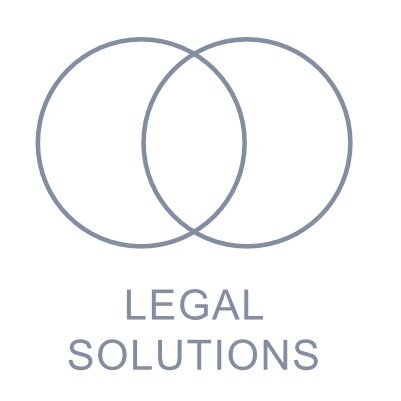Best Immigration Lawyers in Maseru
Share your needs with us, get contacted by law firms.
Free. Takes 2 min.
List of the best lawyers in Maseru, Lesotho
About Immigration Law in Maseru, Lesotho
Maseru, the capital city of Lesotho, operates under the national laws governing immigration that align with both its local needs and regional agreements. Immigration law in Lesotho primarily deals with the entry, stay, and residence of foreigners. The Ministry of Home Affairs oversees immigration issues, with policies evolving to address the country's security, socio-economic, and cultural needs. Key aspects include visa regulations, work permits, and residency requirements. Compliance with these laws ensures legal residency and the ability to engage in activities such as employment and education.
Why You May Need a Lawyer
Engaging a lawyer for immigration issues in Maseru might become necessary under several circumstances:
- Application Denials: If your visa or residency application has been denied and you wish to appeal the decision, a lawyer can provide essential legal support.
- Complex Cases: For individuals with criminal records, health issues, or complicated family situations, legal expertise can be crucial to navigate immigration law effectively.
- Work Permits: Attaining a work permit can be complex, requiring adherence to numerous regulations and thorough documentation. Legal advice ensures compliance and increases application success chances.
- Asylum Seekers: Individuals seeking asylum or refugee status often require legal guidance to understand the eligibility criteria and application procedures.
- Family Reunification: Legal assistance is often needed to manage paperwork and regulations when attempting to reunite family members across national borders.
Local Laws Overview
The Immigration and Citizenship laws in Lesotho address several critical areas:
- Visa Requirements: Different types of visas are available based on the purpose of entry, such as tourist, business, student, or work visas.
- Work Permits: Foreign workers require a valid work permit to be employed legally in Lesotho. Employers usually facilitate this process.
- Permanent Residency: Foreign nationals may aspire to permanent residency status, which involves a stringent approval process.
- Naturalization: Acquiring citizenship through naturalization requires long-term residency and compliance with legal requirements.
- Refugee Status: Lesotho's laws recognize the provision for asylum seekers, requiring compliance with both national and international standards.
Frequently Asked Questions
1. What types of visas are available for Lesotho?
Lesotho offers several visa types, including tourist, business, student, and work visas, each with specific requirements and application procedures.
2. How can I apply for a work permit in Lesotho?
Work permit applications are generally handled by the employer on behalf of the foreign employee. The process involves submitting necessary documents and proof of employment.
3. What are the requirements for obtaining permanent residency?
Permanent residency requires meeting specific residency duration requirements, demonstrating financial stability, and being of good character, among other criteria.
4. Can I appeal if my visa application is rejected?
Yes, there is a provision to appeal visa denials. Employing a lawyer can provide valuable guidance through the appeal process.
5. How long can I stay in Lesotho with a tourist visa?
A tourist visa typically allows a stay of up to 90 days, but you must confirm this period based on the specific visa granted.
6. Is there a special process for refugees seeking asylum?
Yes, asylum seekers must follow a designated legal process that involves interviews and documentation to establish eligibility under refugee status regulations.
7. What documents are required for family reunification visas?
Documentation typically includes proof of relationship, support evidence, legal resident proof of the family member in Lesotho, and financial details.
8. How can I check the status of my visa application?
The status can often be checked through the Ministry of Home Affairs or the immigration office where the application was submitted.
9. Can students work while studying in Lesotho?
Students may be able to work part-time, but this requires adherence to specific regulations and typically necessitates a work permit for students.
10. What happens if I overstay my visa?
Overstaying a visa can lead to penalties, including fines or deportation. It’s crucial to address such situations promptly, potentially with legal assistance.
Additional Resources
For further assistance and legal advice, consider the following resources:
- Ministry of Home Affairs: The primary governmental body overseeing immigration laws and procedures.
- Maseru Legal Aid Clinic: Offers legal services to individuals who need assistance with immigration issues.
- Lesotho Law Society: A professional body that can help you locate certified immigration lawyers.
- United Nations High Commissioner for Refugees (UNHCR): Provides support for refugees and asylum seekers in Lesotho.
Next Steps
If you require legal assistance for immigration issues in Maseru, here’s how to proceed:
- Identify your specific legal needs to clarify which type of immigration issue you require assistance with.
- Contact the organizations or legal bodies mentioned in the resources section for initial advice or to find a qualified lawyer.
- Prepare any available documentation related to your case, such as visa application forms, rejection notices, or employment proofs, and present these to your legal advisor.
- Schedule a consultation with an immigration lawyer to discuss your case in detail and explore potential solutions or next steps.
Lawzana helps you find the best lawyers and law firms in Maseru through a curated and pre-screened list of qualified legal professionals. Our platform offers rankings and detailed profiles of attorneys and law firms, allowing you to compare based on practice areas, including Immigration, experience, and client feedback.
Each profile includes a description of the firm's areas of practice, client reviews, team members and partners, year of establishment, spoken languages, office locations, contact information, social media presence, and any published articles or resources. Most firms on our platform speak English and are experienced in both local and international legal matters.
Get a quote from top-rated law firms in Maseru, Lesotho — quickly, securely, and without unnecessary hassle.
Disclaimer:
The information provided on this page is for general informational purposes only and does not constitute legal advice. While we strive to ensure the accuracy and relevance of the content, legal information may change over time, and interpretations of the law can vary. You should always consult with a qualified legal professional for advice specific to your situation.
We disclaim all liability for actions taken or not taken based on the content of this page. If you believe any information is incorrect or outdated, please contact us, and we will review and update it where appropriate.
Browse immigration law firms by service in Maseru, Lesotho
Maseru, Lesotho Attorneys in related practice areas.









